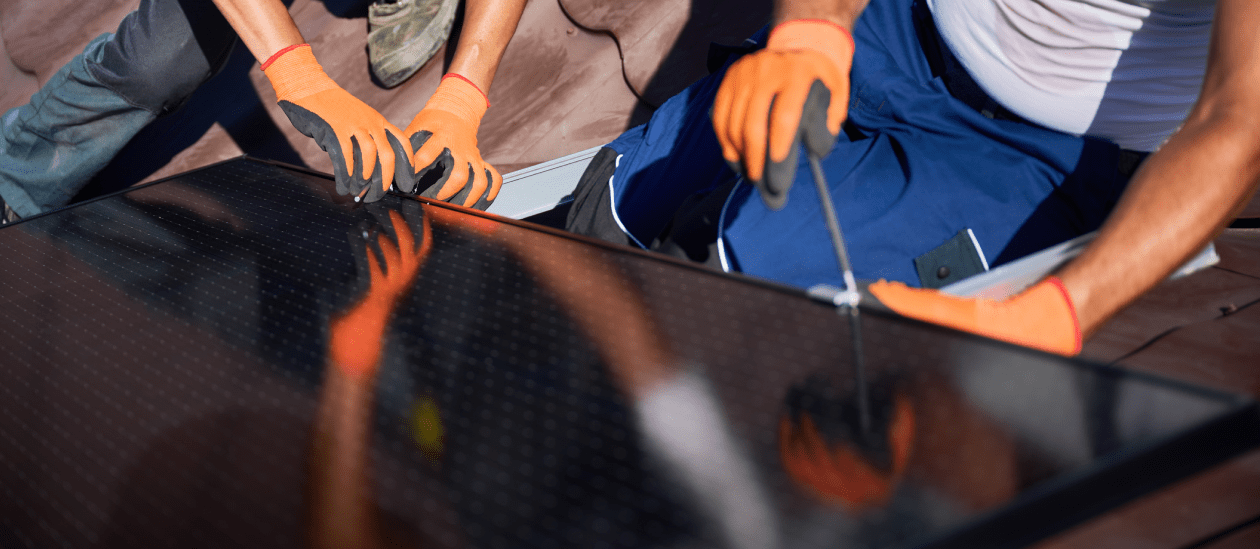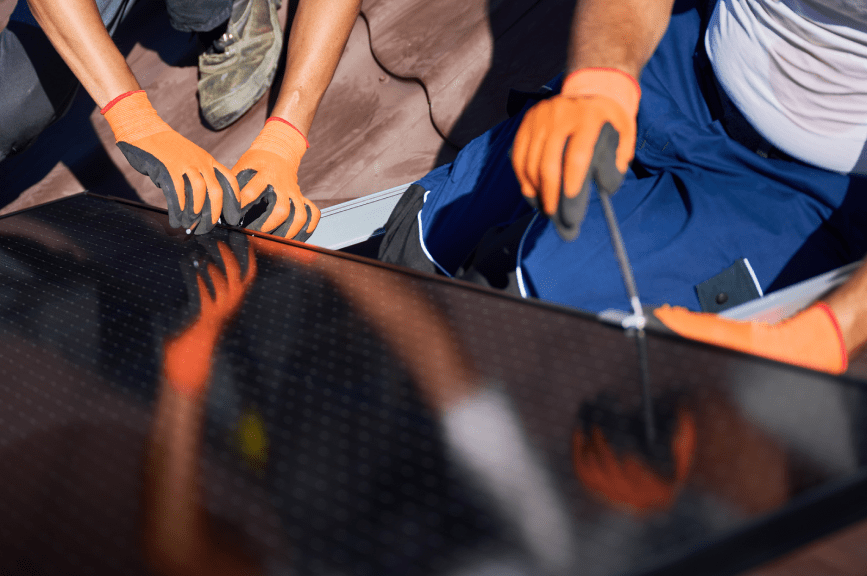

In the past decade, the solar industry has experienced record growth. With demand soaring and the cost of solar down 40%, more than 10,000 solar installers operate across America today.*
But not every company has made it.
Players large and small have endured headwinds from supply chain bottlenecks, inflationary pressures and skyrocketing interest rates. The result? Stifled pipelines, project funding hurdles and slowed sales.
More residential solar companies seem to be folding by the day, leaving behind thousands of orphaned systems. Fortunately, service providers like Sunnova have the resources and expertise to ensure these systems are taken care of over the long term.
If you’ve been orphaned by your solar company, there’s no need to worry. Our solar technicians are highly trained to perform unscheduled maintenance, service, and repairs for defective or inoperable equipment — no matter where you purchased it.
Here are a few of the most common issues we’ve seen with abandoned solar and solar + battery systems.
Overgrown Vegetation

Your solar panels need direct sunlight in order to generate electricity efficiently. Any shading or obstruction can greatly reduce performance and hinder your potential savings.
Tree shading is one issue that can develop over time. If a decade has passed since you installed your array and your neighbor’s tree now casts a shadow on your rooftop at midday, you may notice a decline in solar output.
A bigger issue than trees, however, is overgrown vegetation around any equipment installed outside your home. We’ve seen homeowners let bushes grow around inverters and allow grass to envelop battery components because they’re deemed an eyesore. Some customers will let vines drape over panels on a ground-mounted array. However, overgrown vegetation can lead to excessive heating, while vines tend to shrink and pull on the wires, causing issues and compromising efficiency.
Electrical Issues & Faulty Connections

Over time, connections between your solar panels and inverter, and your inverter and electrical system can become loose, corroded or oxidized. When this occurs, it can interfere with electricity production and lead to decreased performance or even system failure.
Loose connections between wires and the terminals tend to be the most common problem. However, they can also create a fire hazard, so be sure not to tamper with the wiring on your own. Not only can you jeopardize your safety, but you could even invalidate your warranty.
Inverter Failures
An inverter is the brain of your system, converting the direct current (DC) your solar panels generate into alternating current (AC), the electricity used in your home. This piece of equipment is most likely to fail, given it’s the hardest-working component.
Anytime you convert DC voltage to AC (and vice versa), you create heat. Extreme climates, both hot and cold, are more likely to overwork the inverter and shorten its life expectancy. So, if you live in Texas or Minnesota, your inverter may fail sooner than those in coastal California.
Fortunately, most inverters come with a manufacturer’s warranty of at least 10 years. You can recognize a faulty inverter if your energy production has taken a hit, or if your system shuts down entirely.

Cracked & Broken Panels

While it’s rare, solar panels can become damaged in extreme weather or from impact with an object traveling at high speeds. Solar panels are designed to withstand hurricane-force winds, but if your system is older, it can be more vulnerable to the elements. Falling debris, massive hail or a blow from a baseball or golf ball can crack the tempered glass on your panels.
Each module of your solar array is made up of miniature cells that expand and contract during the thermal cycle, meaning they get colder at night and warmer during the day. Over the years, tiny fractures called microcracks can form inside the cells and reduce production, even if you don’t see any visible damage.

Critter Damage
Nesting birds, squirrels and other rodents may seek refuge in the shaded, warm area beneath your solar panels. Birds like pigeons are homing birds, meaning they’ll return to this nesting site on your roof year after year. Aside from scattering nesting materials in all directions, they also leave acidic droppings that can eat through your equipment and discolor your panels.*
Squirrels are known for treating your wiring like twigs, chewing on them and clawing at them to control overgrown teeth and claws. In extreme cases, mice, chipmunks and other rodents have been known to short-circuit solar arrays, causing damage and even sparking fires.
If you hear birds shuffling or rodents scampering around your rooftop array, it’s a good idea to have a professional check for damage. Simple solutions like spikes and mesh wire can humanely prevent critters from returning.
Reduced Energy Transfer

Normal wear and tear leads to solar system degradation. Therefore, the rate at which your solar system converts sunlight to energy will inherently decrease.
The most common causes are exposure to the elements: sunlight, humidity and temperature fluctuations. Mechanical stress can also reduce your solar system’s efficiency over time.
The National Electrical Code (NEC) recommends that any electrical system should be checked annually to ensure there are no loose connections that can put your home at risk of catching fire.
Batteries Overcharging & Undercharging
A solar battery can become damaged from overcharging, undercharging and faulty connections. If your charge controller malfunctions, it can allow a higher voltage to be sent from your solar panels to your battery, causing an overcharge.
Conversely, if your battery isn’t fully charged due to loose or damaged connections, this can weaken your battery’s structure and cause corrosion. Undercharging is also associated with a defective charge controller and should be properly diagnosed to prevent long-term damage.


Sunnova Offers a Solution for Orphaned Systems
If you notice an issue with your solar system and it’s out of warranty or your installer is no longer in business, Sunnova is here to help. For an initial fee, we’ll assess your solar or solar + battery system and determine what needs to be fixed or replaced.
While solar requires less maintenance than systems with more moving parts like your HVAC, things happen as equipment ages. Our certified solar technicians are highly skilled in troubleshooting a variety of systems and fixing issues caused by weather, manufacturer defects, improper installation and more.
Don’t wait to make repairs!

